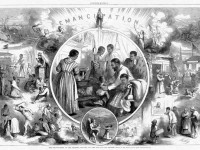REVIEW: Delicious!
Delicious! tells the tale of Billie Breslin, a Californian in her early twenties who takes a job as an assistant at the most iconic food magazine in New York. Billie has an unusual talent for identifying spices and combining flavors, which attracts the attention of her new colleagues and culinary acquaintances in the city. When Delicious is surprisingly shut down, Billie is offered a job to stay behind in the magazine’s deserted downtown mansion offices to answer the magazines “Delicious Guarantee” and respond to complaints and recipe inquiries from the public.









 We Can Do Better, South Carolina!
We Can Do Better, South Carolina!

























Recent Comments